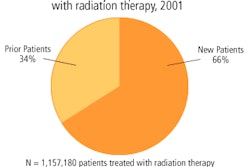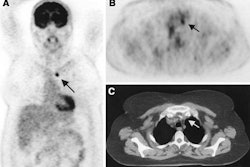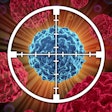"Results of this study suggest that initial response is durable," said Dr. Michael Zelefsky during a presentation at the 2003 American Society for Therapeutic Radiology and Oncology (ASTRO) in Salt Lake City.
Viagra (sildenafil citrate) works both short-term and long-term for radiation therapy-associated erectile dysfunction (ED), according to results of a study of 363 men treated for localized prostate cancer.
Dr. Michael Zelefsky from Memorial Sloan-Kettering Cancer Center in New York City said about 70% of men who develop ED after radiation therapy responded to sildenafil citrate (SC).
"Results of this study suggest that initial response is durable," he said during a presentation at the 2003 American Society for Therapeutic Radiology and Oncology (ASTRO) in Salt Lake City. Zelefsky added that this finding was surprising because he fully expected the benefit to diminish over time, and that he "didn’t expect men to keep taking the drug."
Zelefsky and colleagues followed 363 men who underwent either 3-D conformal radiation therapy (3D-CRT) or brachytherapy for the treatment of clinically localized prostate cancer. The median dose for 3D-CRT was 81Gy. All of the men had been potent prior to treatment, and those who developed ED following treatment were prescribed Viagra (50-100 mg).
Initially 75% of the men responded to SC treatment. After almost 4 years of follow-up "96% of the men who initially responded to Viagra were still taking the drug and all but 6 of the men said the drug was still effective," he said.
Zelefsky said the patients who reported that SC stopped working were those who were treated with extremely high-dose 3D-CRT. He said the efficacy of SC dropped to 72% for men who receive 75.6 Gy or higher, while 85% of men who received lower dose radiation said the drug worked. "There was no dose-dependent difference in response for men who were treated with brachytherapy," he said.
Dr. Richard Valicenti commented on the group’s study, calling it "important since it shows that treatment with (Viagra) can deliver a durable response." Valicenti is an associate professor of radiation oncology at Thomas Jefferson University Hospital in Philadelphia.
But Valicenti said that he was a little surprised by the results. Noting that the men were treated from 1999 through 2002, he says there was a fairly wide range in length of treatment. "And, we don’t really know how often they are taking the drug. We know that with repeated use tolerance develops for many drugs and we expect it for this drug as well," he said.
If tolerance does develop, the new erectile dysfunction drug, Levitra (vardenafil HCI), could be an option, Zelefsky said. His group is conducting a study with this newly approved drug, but Zelefsky noted that it will be some time before the results are available. Meanwhile, those who did not respond to Viagra are being treated with Levitra at his institution.
By Peggy PeckAuntMinnie.com contributing writer
November 13, 2003
Related Reading
Contrast ultrasound shows potential for prostate cancer detection, October 24, 2003
Single-fraction radiotherapy effectively treats painful bone metastases, October 20, 2003
Copyright © 2003 AuntMinnie.com



















